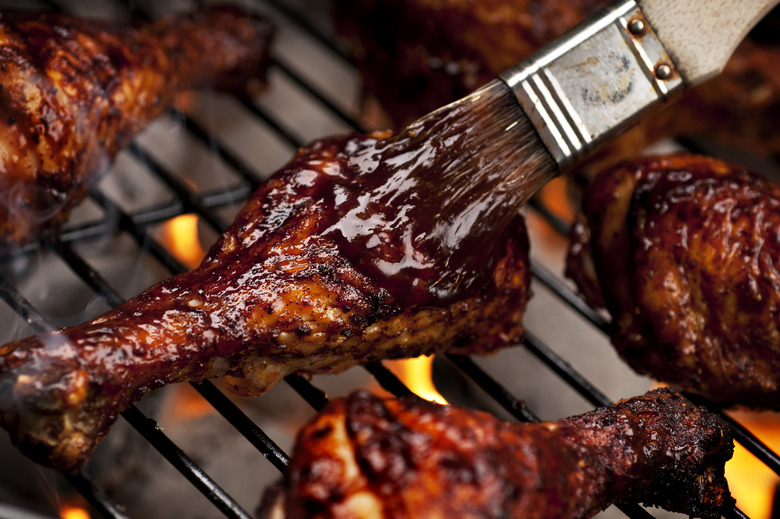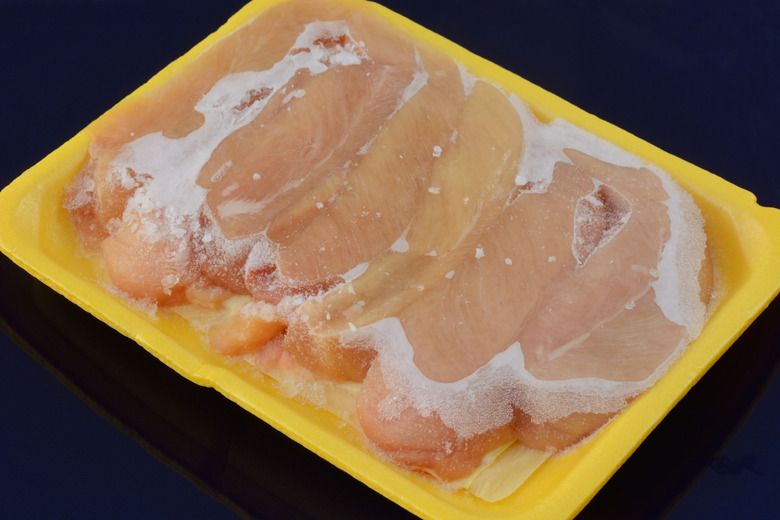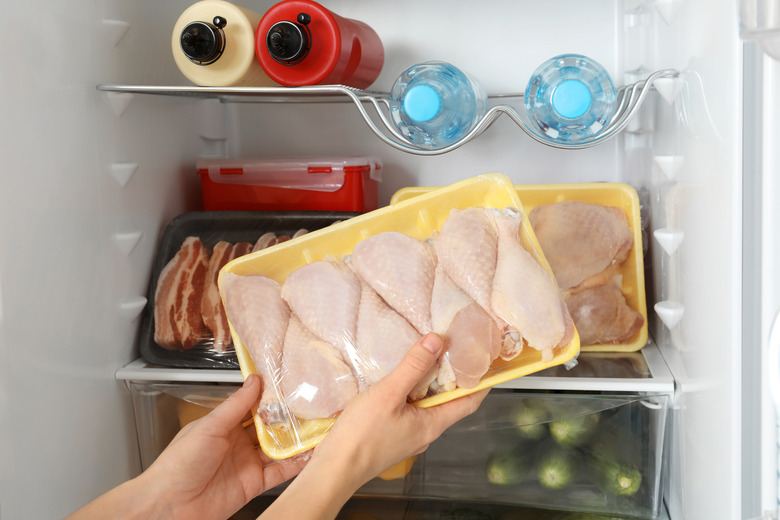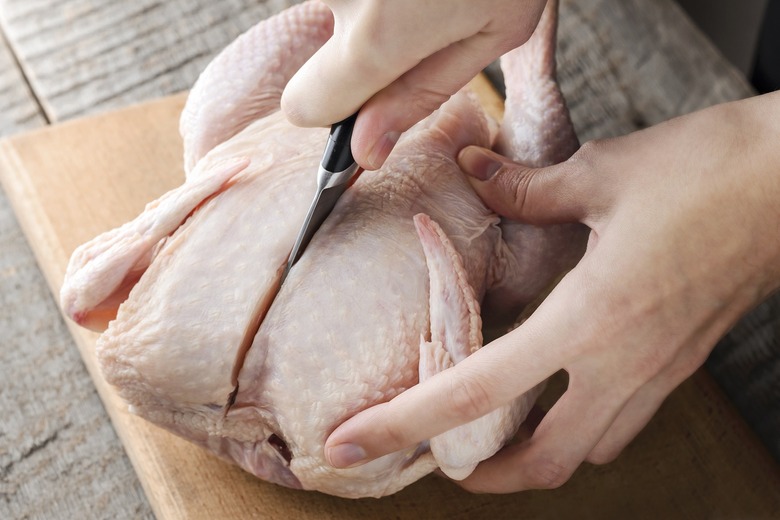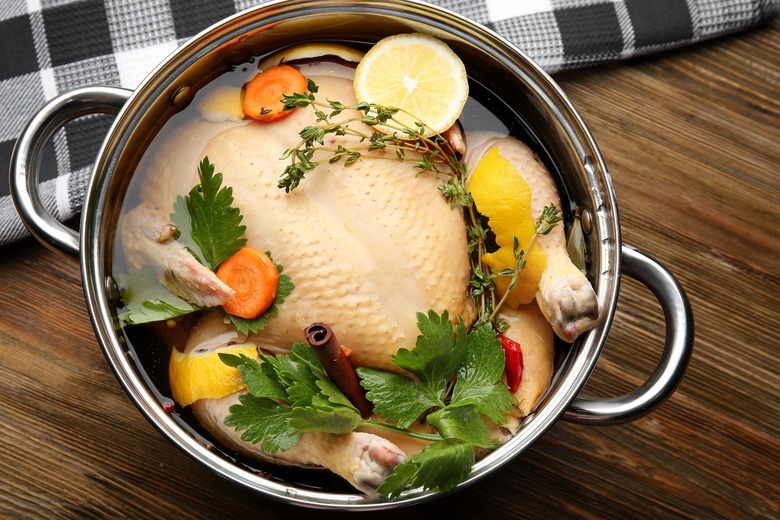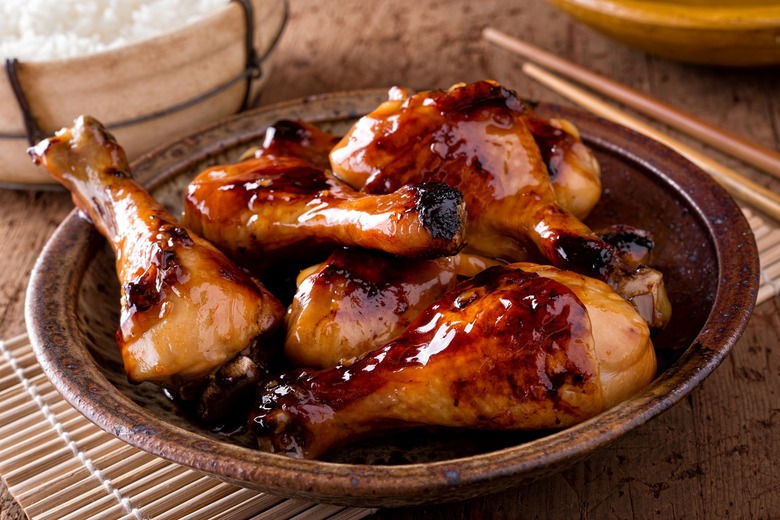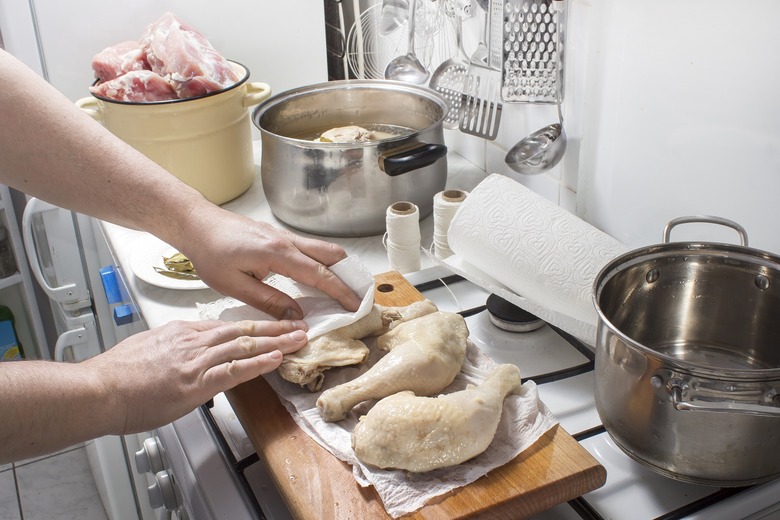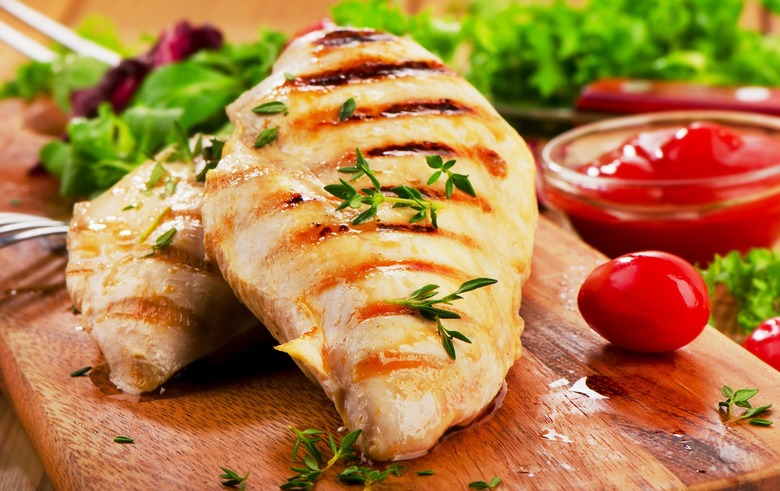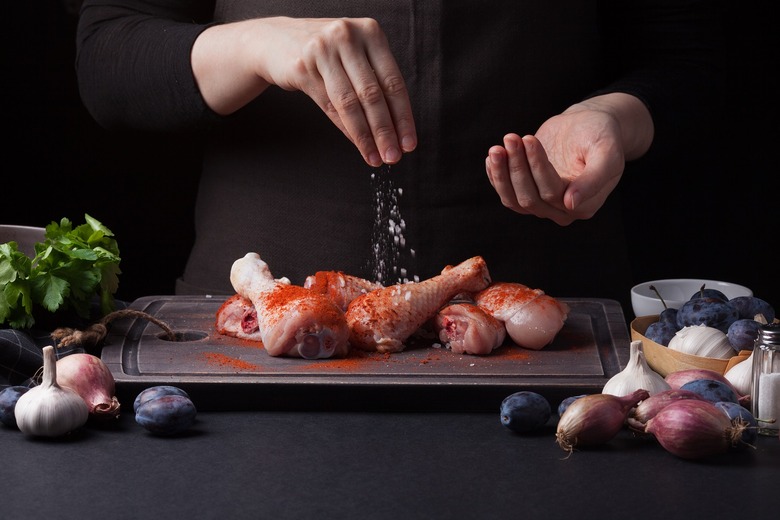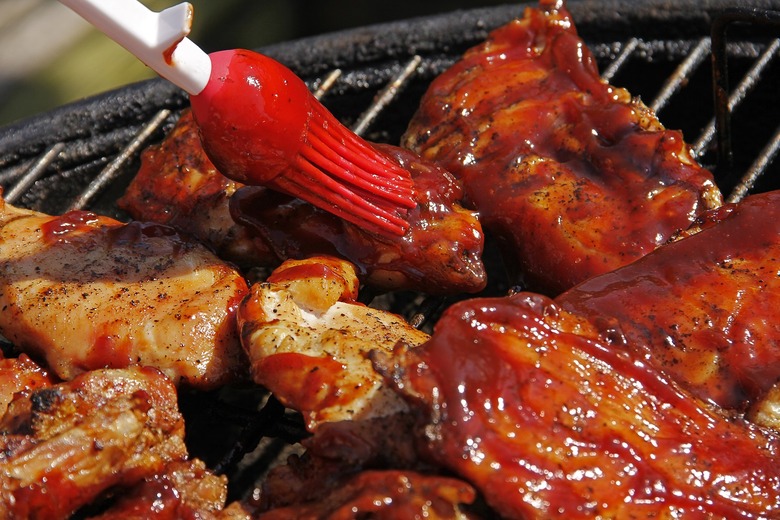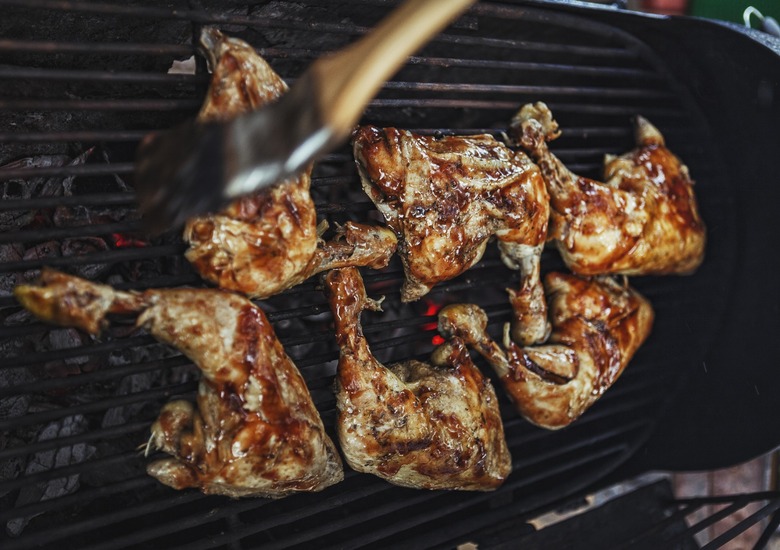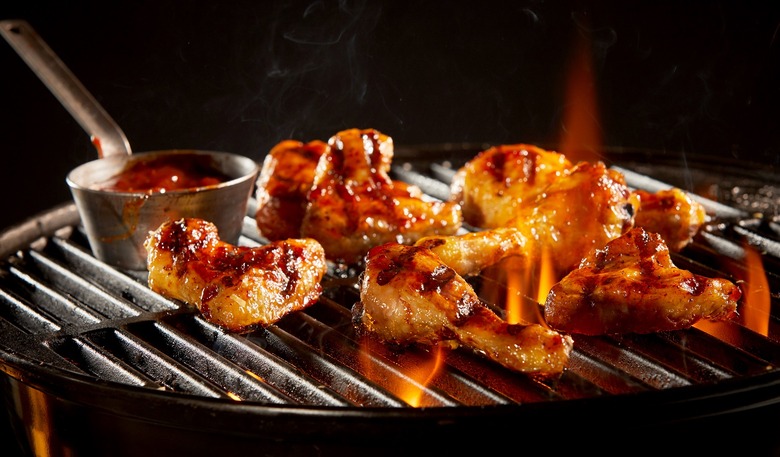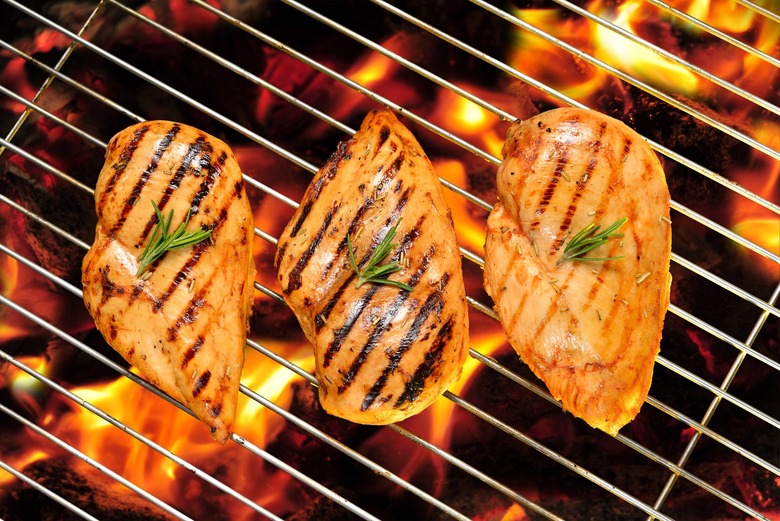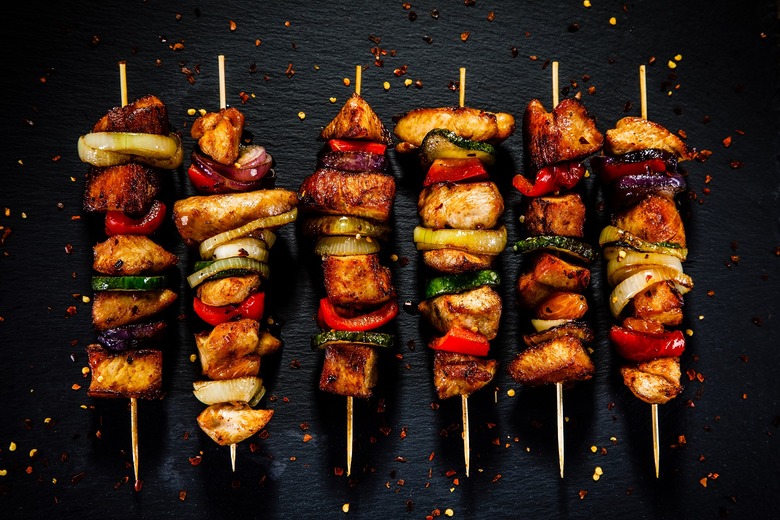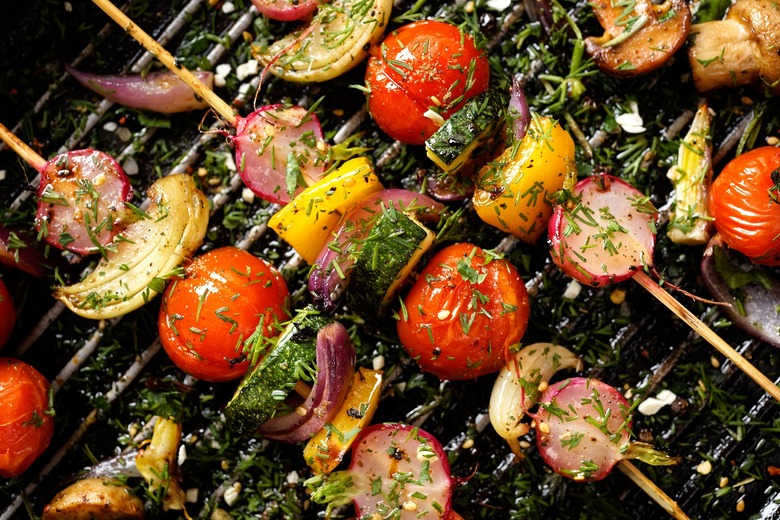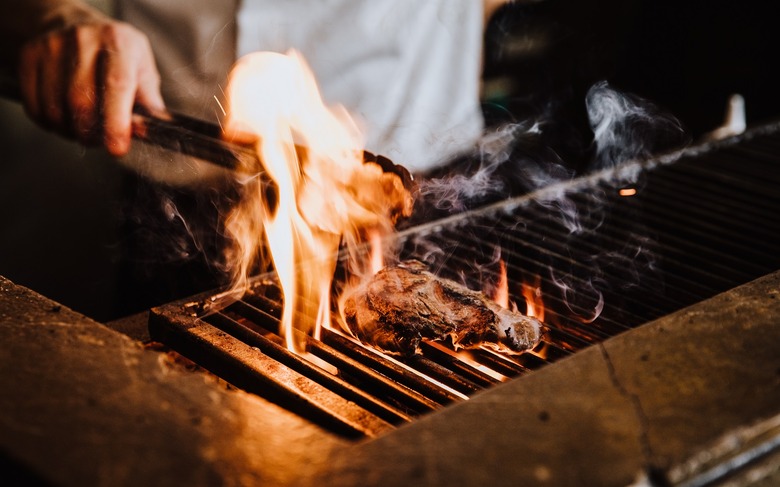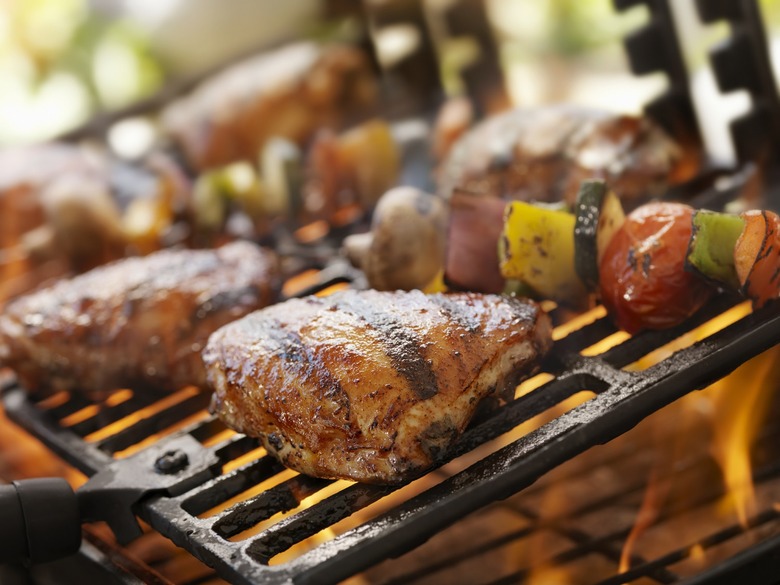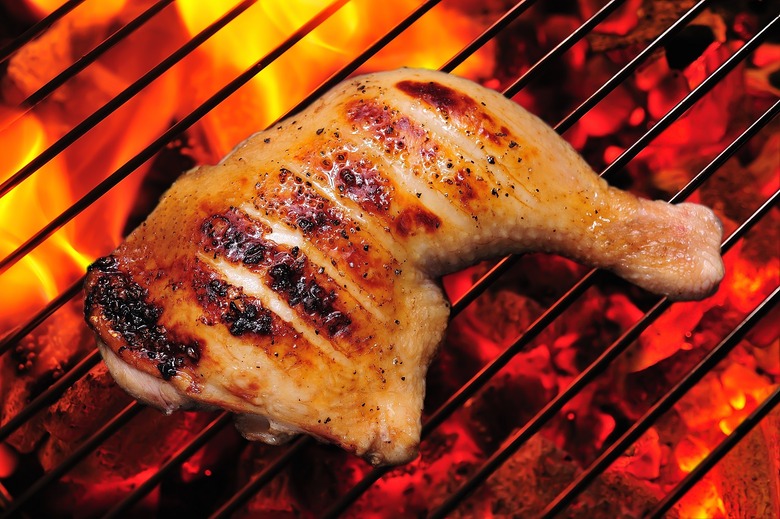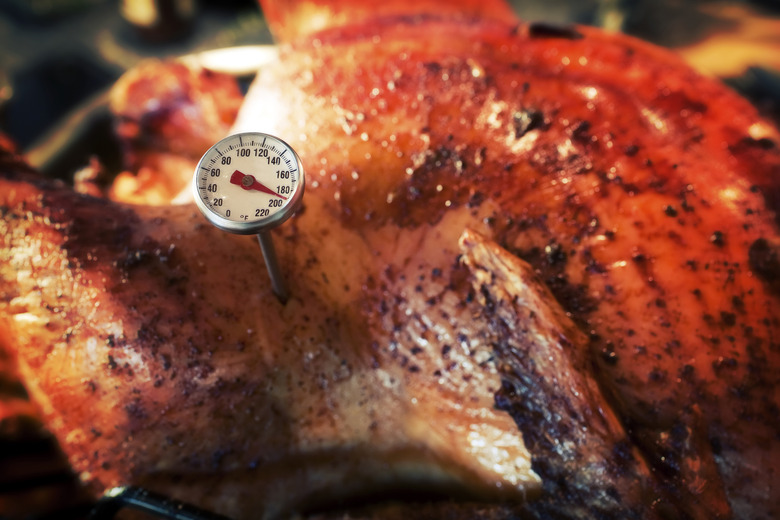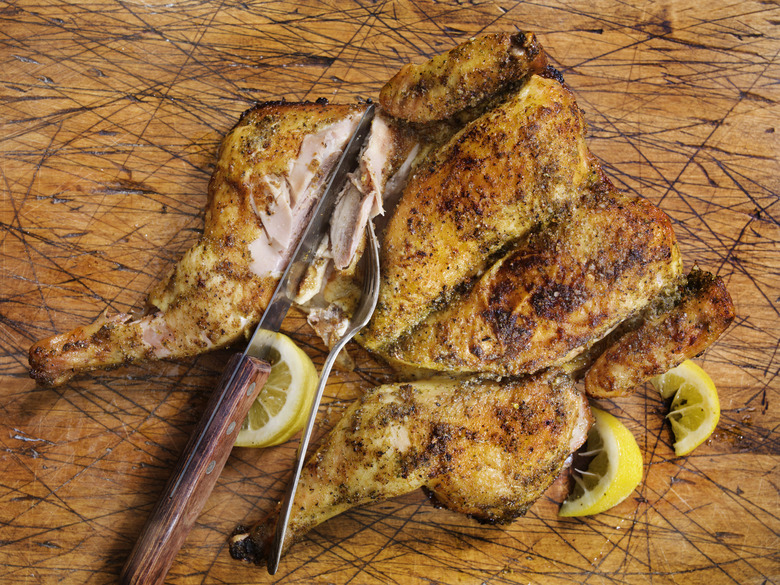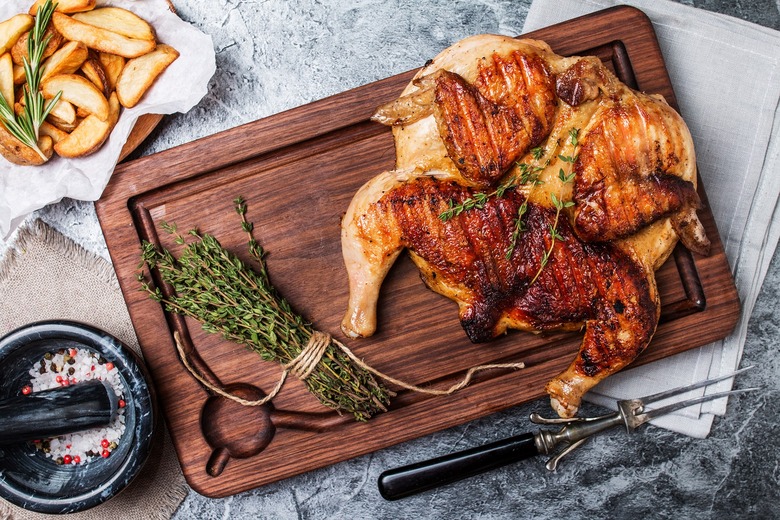How To Grill Chicken: Avoid These Mistakes
Even if you have the absolute best grilled chicken recipes on hand and you follow them exactly, something could go wrong. Maybe your chicken is simultaneously raw and burnt, and even though you marinated your bird, it's still bland. What did you do? Knowing what mistakes to avoid when cooking chicken on your grill can help you turn that potential party foul into a party-ready fowl.
Mistake: Not defrosting the chicken properly
You technically can grill frozen meat or poultry, but your cooking time is going to increase by 50%. When it comes to chicken, that may mean that your skin and marinade will get extra crispy and the interior of your poultry, while cooked through, may have a less-than-desirable texture.
Fix: How to defrost chicken
So, how should you thaw chicken? Whether you are using thighs, breasts or a whole bird, your prep begins the day before your dinner. The best way to defrost the bird is slowly in the fridge. If you do happen to forget, don't worry. Similar to thawing a frozen turkey at the last minute, you can fill your sink with cold water, submerge your frozen chicken and change out the water every 30 minutes until it is defrosted.
Mistake: Forgetting to brine the bird
One of the most common grilling questions is: How do you grill chicken? A brine is the first step to perfect poultry on the grill, whether you're cooking an entire chicken, thighs or even a simple bone-in breast. This step adds tons of flavor to the meat and helps to tenderize it.
Fix: How to brine chicken for the grill
For a simple brined chicken recipe, combine 4 quarts of water, 1/4 cup of sugar and 1/2 cup of salt in a large stockpot. Bring that solution to a boil over high heat. Reduce the heat to medium-low and simmer for 10 minutes, or until sugar and salt are dissolved. Once the solution has cooled, add raw chicken to the stockpot and refrigerate for one to five hours.
Mistake: Forgetting to dry before grilling
Putting your chicken in a delicious, unexpected marinade can make or break it. But wet chicken causes steam, which means your skin won't get as crispy.
Fix: How to dry chicken
If your chicken has been in brine or is simply a little damp, make sure you pat it dry with paper towels before you put it on the grill. Doing otherwise is a rookie grilling mistake. Not only will seasonings like salt and spices adhere and penetrate the flesh more effectively, but you will also get a nicer crust and color on your chicken.
Mistake: Using salt sparingly
What was one of the reasons why your grandma's food tasted so much better? She wasn't afraid of seasoning. Salt, pepper, garlic and other seasonings can make or break your meal.
Fix: How to season chicken
Season the outside of your chicken generously and evenly. One of the top turkey roasting tips applies to cooking chicken as well. If you are grilling a whole bird, don't forget to season the inside (the cavity) as well as the skin. After all, nobody likes a bland dinner.
Mistake: Adding sauce right from the get-go
By covering your chicken with barbecue sauce from the first moment it hits the grill, you are setting yourself up for burnt disappointment. Even the best barbecue sauce recipe is filled with sugar, which burns quickly. Saucing your chicken right away will not only ruin the flavor of the sauce and the chicken, but it will also give you a false sense of when the chicken is cooked through due to a darker hue.
Fix: How to add sauce to your chicken
A great barbecue sauce is key to some the easiest grilling recipes. But hold off on the slather until the last few minutes of cooking. If you're brushing your chicken with a marinade it had previously been sitting in, be sure to boil the marinade before brushing it on to avoid illness.
Mistake: Cooking all cuts of chicken the same way
Boneless and bone-in, skinless and skin-on, breast and thigh — each cut of chicken is different and should be treated as such. If you add your thin-cut, boneless, skinless chicken breast to the grill at the same time that you add your bone-in breasts and expect them to cook at the same rate, you'll be wildly disappointed.
Fix: How long to grill different cuts of chicken
All chicken should be cooked to at least 165 degrees, but the rate at which that will happen on the grill varies depending on the cut of meat. A whole hen should be grilled for 18 to 25 minutes per pound. Bone-in chicken pieces such as legs, thighs and breasts should be cooked for 10 to 15 minutes per side, while boneless chicken breasts need just six to eight minutes per side.
Mistake: Grilling meat and vegetables together
A tasty kebab recipe is great, but skewering your chicken and your vegetables together on one stick could lead to food poisoning. Cross contamination is real, and putting raw chicken right next to vegetables or cooked food will spread germs.
Fix: How to grill meat and vegetables
Not only can skewering your meat and veggies together make you sick, it will also lead to an unevenly cooked meal. Keep raw chicken separate from other things you are cooking, and if possible, use a different cutting board for your meat and veggies. Some of the best grilling recipes of all time feature meat and accompaniments, but keeping them apart will help to ensure safer dining.
Mistake: Cooking over high heat
Some people seem to think that the point of a barbecue is to put on a show — stoke the coals, feed the flame and throw your poultry into the raging fire. You may think high heat is the key to quickly cooking chicken, but it will just lead to a burnt exterior and less-than-done interior.
Fix: How to cook grilled chicken
Chicken is best cooked over direct, medium heat at 425 to 450 degrees. It may not look especially flashy, but the perfectly-cooked meat will speak for itself.
Mistake: Not using a meat thermometer
One of the top restaurant secrets home chefs need to know is that you cannot cook by color or feel. A piece of meat can look great from the outside — all grill marks and crispy skin — but then you take a bite and discover a horrifying truth: It's raw. It's also easy to just let your chicken cook and cook and cook, leaving you with a rubbery, dry piece of meat at the end of the day. The only solution is to use a meat thermometer to ensure your chicken is food safe without being dried out.
Fix: How to know when your chicken is done
According to the United States Department of Agriculture, chicken should have an internal temperature of 165 degrees regardless of cut, which you should measure using a meat thermometer. Just judging your meat by touch or color is one of those bad cooking mistakes you need to stop now.
Mistake: Not letting the chicken rest after cooking
One of the top tips for cooking steak, turkey and other meats correctly also applies to chicken: You need to let it rest. Giving your meat a moment after you're done cooking helps to redistribute the juices, leading to juicer, tastier chicken.
Fix: How long to let chicken rest
For any small cut of chicken, let it sit for about five minutes before digging in. If you've cooked a whole bird on the grill, you need a full 20 to 30 minutes of rest time. And now that you know the technical aspects of grilling chicken, it's about time you learn how to cook grilled chicken that isn't boring.
More from The Daily Meal:
Picnic Recipes Perfect For Your Blanket and Basket'
